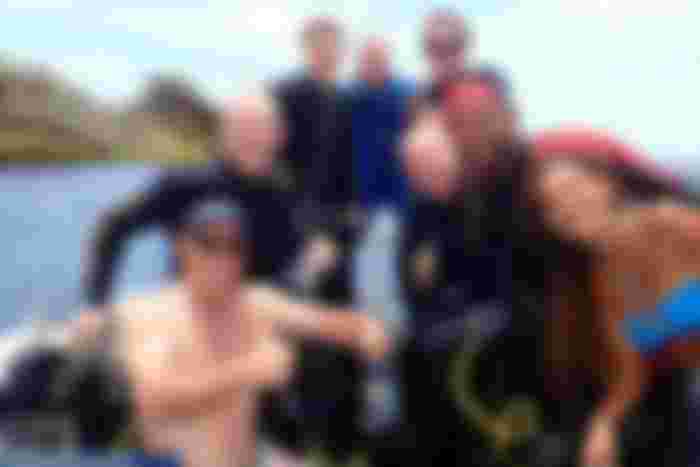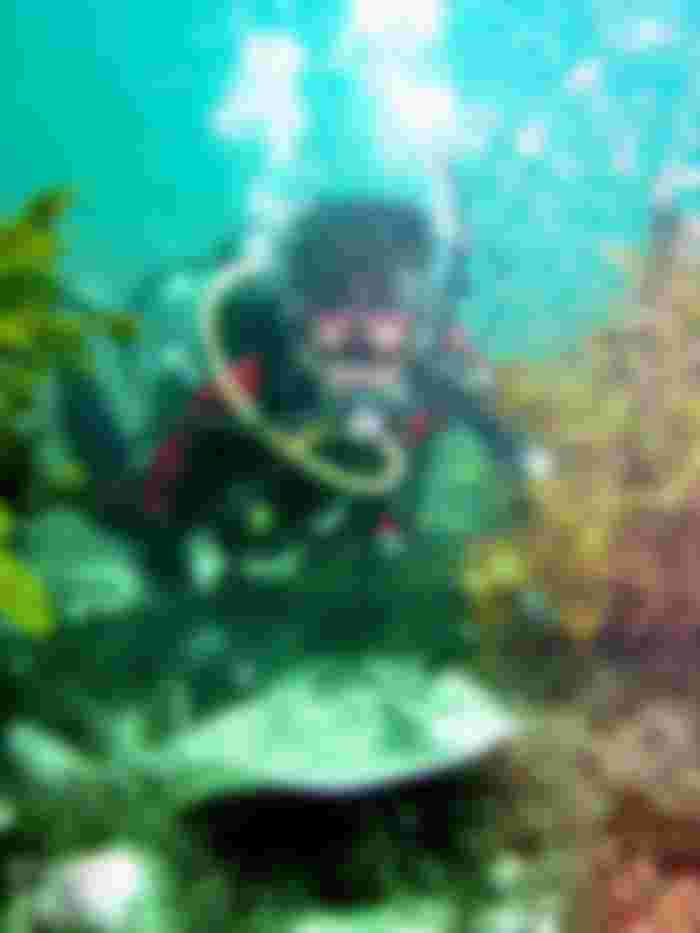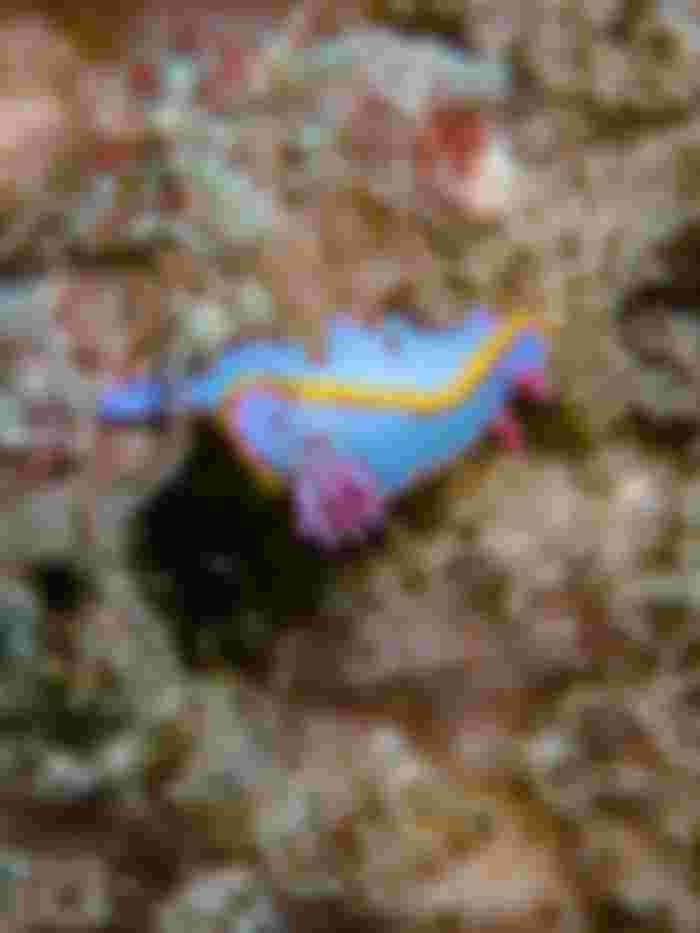3 percent of the earth is water and one part is land. So those who can't get into the water because they don't know how to swim, are often jokingly called one of the losers, whose sixteen years of life are useless. While this may not be true, it does apply to those who have not been scuba diving or have not had the privilege of seeing the supernatural world under the sea. Scuba diving is a completely different kind of adventure that will take you to another unfamiliar world in this world. As you may have seen astronauts floating in spaceless space, scuba diving provides a similar feeling underwater. The most interesting or regrettable thing is that even though human knowledge about space is far away, the idea of an underwater world on our own earth is probably closer to zero. Scuba diving is one of the most popular English sayings; "Lands are already discovered, space is too far, let's discover another universe under water".

For the people living in the coastal areas, nature has generously given away the immense potential of scuba diving. South, Southeast Asia and the Australia-Oceania region are the most ideal and popular for scuba diving, with the exception of the coasts of Mexico and Egypt. Australia, the richest continent, is home to world-famous coral reefs such as the Great Barrier Reef. The combination of cool waters from the distant South Pole and warm waters of the Pacific Ocean has created one of the richest marine ecosystems in the world along the coast of Australia. So it is very easy to meet one of the strangest and most beautiful aquatic animals in the world. Thousands of diving tourists flock to this coast every year to see all the different aquatic creatures like terrestrial kangaroos and platypus, which has inevitably turned Australia into a mecca for scuba divers. One of the biggest sources of tourism in Australia in recent times is scuba diving, which is growing exponentially. Regrettably, there is a coral like the Great Barrier Reef in Bangladesh, there is a whole coral island called Saint Martin, a unique gift of nature. But Bangladesh is the only country in South, Southeast Asia, where this immense potential tourism industry has not yet developed. Although many adventure sports such as mountaineering, cycling, camping and trekking have evolved overnight in recent times, scuba diving has been neglected due to lack of proper knowledge and adequate patronage.

First of all, let's talk about what scuba diving is. SCUBA or self-contained underwater breathing apparatus means a kind of technical or mechanical system through which our land people can become like fish living in water. There is a cylinder carrying high pressure air and from there there is the facility of normal breathing like a shore, as well as the necessary equipment like floating like a fish under water, the technical facility of drowning as required and complete floating on the water and temperature friendly clothing. In a word, scuba water is a self-contained landmark for some time. There are many more ways to dive into the water than scuba diving, but scuba diving is the most popular because of its readiness and practical benefits.
From time immemorial, Bengalis have been called by the title of Gharkuno, whether in the country or abroad! However, his prevalence in the busy life of exile is more. However, adventure sports have become very popular in Bangladesh in recent times, with most expatriates' adventures limited to occasional vacation walks or long drives. And so this extraordinary underwater world on the beach next to the house is unfamiliar to most people. Without adequate planning and investment our country’s infrastructure, tourism system, water, environment, weather and long sand beaches may not be ideal for starting scuba diving. Therefore, expatriates living in Australia or other coastal countries are specifically mentioned because they do not have these restrictions, just like walking in a park, they may want to return to a different world.

Although many Bangladeshis have had the experience of diving in the Great Barrier Reef or the scuba experience in Indonesia, Thailand, Maldives or Bali in a very short time, there is not enough time to enjoy that diverse world on the sea floor. Like all other adventure sports, the main reason for the reluctance of Bengalis in scuba diving is the fear of the unknown and the mentality of avoiding danger. In this case, the shark attack serves as a big myth, even many expatriates avoid swimming in the water for this unknown fear. However, it would be a complete mistake to say that expatriates are not interested in scuba diving. So far, all the Bengalis who have been asked or who have known about scuba diving have expressed interest and expressed their desire to dive at least once in their lives. And then comes some inevitable questions or concerns. One of the two fears that works most among us is not knowing how to swim, the other is the fear of sharks.

First of all, let's talk about swimming. People do not usually drown in water, meaning the human body is lighter than water, the head is heavier, for which swimming is actually learning the technique of keeping the head floating on water. Since people lose more weight under water and do not need to float to breathe, you can easily experience this even if you do not know how to swim. You may have to carry extra weight to stay submerged. People actually know how to swim in their mother's womb, every child has grown up as a diver in ten months. So kids can learn to swim very easily. Since diving is more important than diving, it is not necessary to know how to swim for a normal scuba experience. Although it is a commercial campaign, people who do not know how to swim or are afraid of water can easily purchase this service. Anyone who goes to the Great Barrier Reef or all the scuba centers in the world to get a diving experience can swim in the water for a certain amount of money even if they don't know how to swim. After some short-term rules and general diving introductions at the diving centers, tourist guides take them by the hand into the water. Literally it is called 'Discover Scuba Diving', which means you have the experience of diving into the water, although it is by no means a complete scuba diving experience. This will be discussed in detail in the next episode.

Is it safe? Of course. A scuba instructor or dive guide (divemaster) obtains a professional license after a long period of study and practical knowledge, passing numerous tests step by step. Not only that, every scuba instructor is a compulsory first aid instructor and rescue specialist. It is easy to assume that they are skilled swimmers as well. At the same time, the advancement and advancement of technology has made scuba diving a very safe adventure sport, so at present, scuba diving is an easy and safe way for the public to be fearless and very easy. Scuba diving is a highly regulated sport, so scuba diving can easily be declared as safer than even road driving.

However, to get a scuba diving license or to enjoy scuba diving on your own, you need to know how to swim. So even if all the scuba centers take you under water for business reasons, you can't enjoy almost anything if you don't know how to swim. It's a lot like cycling. You can enjoy cycling very easily while sitting in the back carrier but you can't take that feeling of cycling completely. If you do not know how to swim, you will always be in an unknown fear in the water, or you will not be able to master how to move your arms and legs. The scuba experience is over when the air in your cylinder runs out and you end up trying to get under the water by throwing your arms and legs in extreme fear. You can see and enjoy very little, where the real thing is to enjoy. The more frightened you are, the faster your breathing will be and the faster you will exhaust the air in the cylinder. So if you can keep the fear at bay for a while, then you can enjoy the beauty of that strange world in Discover Scuba System for maybe 20-30 minutes without knowing how to swim.

Now let's talk about real scuba diving. Scuba diving is a purely technical sport, so it is important to know the details. There is no such thing as actual scuba diving, although here it refers to obtaining a scuba license or becoming a self-sufficient diver through adequate theoretical and practical training. General swimming skills are essential to avoid all kinds of accidents. Training courses exist in various diving schools around the world for learning basic diving. Many international organizations issue diving certificates, which are ESO certified (this only applies to internationally recognized organizations). These are called diving schools. These schools again operate under an organization like the International Football or Cricket Body. So no matter which school or method you learn diving from, it provides pretty much the same kind of training. A license is issued once the training is completed from any international school, which is acceptable to any scuba school in any country in the world. This means that wherever you go as a certified scuba diver, you can hire scuba equipment yourself by showing your license or go with a guide to explore the diverse underwater world. You cannot hire scuba tanks or other equipment or go with a guide without a license. It works for a lifetime, just like learning to ride a bike once. There is no substitute for a scuba certificate to go down on your own as a self-sufficient diver in different parts of the world or in the water next to your house.

The second or in particular case the main obstacle to learning diving is the fear of sharks. Sharks don't eat people, they don't need human food. Sharks are not portrayed as monsters and bloodthirsty monsters in movies. Like all other wild animals, the shark is an animal. Of the 489 or more species of sharks in the world, only 3 species have been recorded to attack humans. The average number of shark attacks worldwide is about 80 each year, although only two-thirds of the attacks occur in the United States. The death toll from the attack is staggering, averaging less than six a year worldwide. But every day millions of people around the world go into the water. Although two things are not one, one thing can be thought of just to give an idea; In Bangladesh alone, the average death rate in road accidents is more than one and a half hundred per day. The fear of sharks is nothing more than an unknown unreasonable fear, with 5-6 people dying every year there around the world. Another interesting thing is that shark attacks usually take place on the surface of the water, the record of shark attacks on divers is very low.
You will find details about sharks and their attacks in our next episode.

This episode tries to have a general discussion about what scuba diving is and what it is. Subsequent episodes will discuss in detail how to easily learn scuba diving. There will also be a detailed discussion of sharks, myths about sharks and simple technical solutions to avoid sharks in the water. In the water next to the house in your respective area, there are acquaintances of all unknown animals. So far today, see you in the next episode.
Thanks for reading this article for so long.
If you like it Upvote Can give.









I tried scuba diving for the very first time in September when we're in Turkey. I can't swim but they say it's okay. It's not easy breathing through the regulator piece but I did manage and went under the sea and saw the beauties under before I got panic and started drinking water. Thought I'm going go die. But still worth the experience.